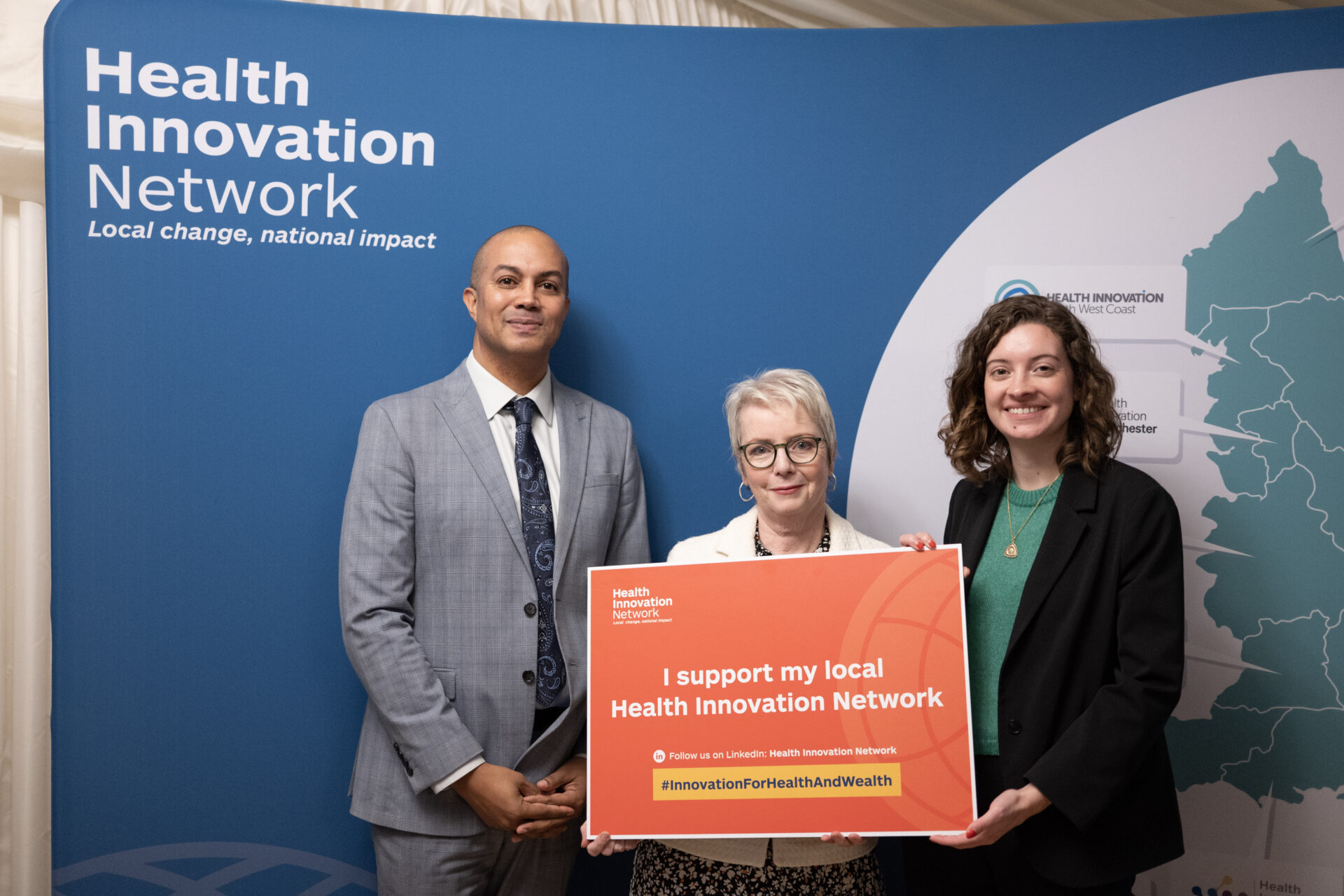The Health Innovation Network is passionate about the role of innovation in tackling health inequalities.
These disparities, which are deeply rooted in factors like employment, ethnicity, locality, gender, disability, and housing, continue to hinder equitable access to healthcare and impact life expectancy.
Digital solutions have the power to bridge gaps in health inequality.
We’re proud to be joined by 10 cutting-edge digital innovators at HETT North 2024, in Manchester on Wednesday 28 February.
Here’s how some of the Network-supported innovators, are making valuable contributions towards health equity:
Remote monitoring: A remote monitoring solution, patientMpower, is revolutionising access to care by reducing the need for in-person clinic visits. Amy Boulstridge explains: “By reducing the need for out-patient clinic visits but as much as 70%, use of the patientMpower remote monitoring solution has been shown to dramatically improve access to care.
“Reducing the burden associated with clinic attendance, such as travel costs, public transport challenges, reliance on caregivers, missed time at work or away from other responsibilities, plus symptom burden for those with advanced illness reduces health inequalities that exist with traditional models of care.”
Empowering communities through technology: SiSU Health UK is creating healthier communities through digital health stations and mobile apps. Rachael Rowe, Head of Marketing, said: “Getting a digital health check is as easy as buying a loaf of bread, with self-service SiSU Health Stations in places where people live their lives. We empower people to monitor and manage their health through access to their health data, recommendations and ongoing digital resources.”
Support for the unheard voice: Mobilise supports unpaid carers with their digital carer support platform, which aims to enhance resilience and combat loneliness among caregivers, ultimately improving health outcomes.
James Townsend, Co-Founder and CEO if Mobilise, said: “Caring for someone else can have a huge impact on our health and wellbeing. Public Health England research has shown there’s ‘mounting evidence that unpaid caring should be considered a social determinant of health’. That’s why Mobilise has been created by carers, for carers. Our digital carer support is designed to prevent poor health and wellbeing outcomes for those of us who look after someone else.
“In fact, 80% of our community say they’ve seen an improvement in their resilience. Also, 60% say they feel less alone. And by reaching hundreds of thousands of unpaid carers, and utilising technology, we’re making this difference at scale.
“Increased resilience and decreased loneliness mean better outcomes for our health and wellbeing. That in turn means we can continue to care and thrive.”
Tailored solutions for diverse needs: Holly Health is a personalised health coaching app for patients living with, or at risk of, long-term conditions. Grace Gimson, Co-Founder, said: “We run many programs to help reduce inequalities, through easy service accessibility, tailoring to unique individual needs, adapting to education and health confidence levels, exploring population health data insights.”
Find out more about how we work with innovators.

Join us on 11 and 12 June in Manchester to find out how the Health Innovation Network is improving health and driving wealth through health innovation. This year we’ll be joined on our stand by 18 Network-supported innovators, showcasing innovations which are helping to deliver the Government’s three shifts for the NHS and solve some [...]

The Health Innovation Network is delighted to announce the launch of Innovation Insights, a brand-new webinar series designed to highlight the latest in health innovation, offering attendees valuable insights into the adoption and spread of innovation within the health and care landscape. Each interactive webinar will feature: Expert presentations: Delivered by thought leaders across [...]

The Health Innovation Network, at an event sponsored by Sarah Coombes MP, brought together parliamentarians including Health Minister Karin Smyth MP and Chair of the Science, Innovation and Technology Committee, Chi Onwurah MP to meet with six innovators supported by health innovation networks across the country and their NHS partners. At the Meet the Innovators: [...]






